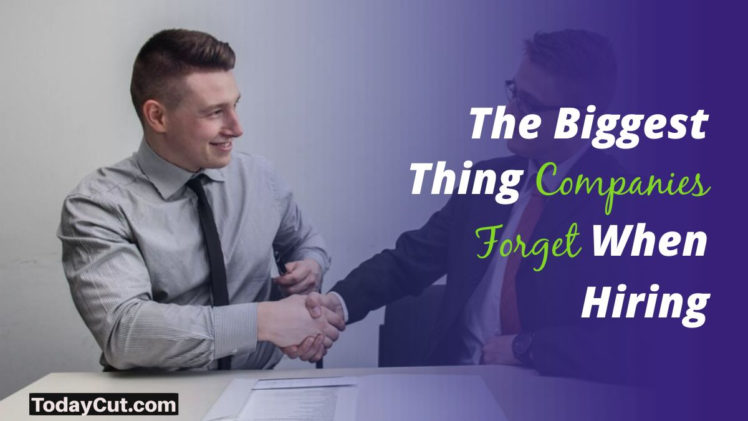You already know how important hiring is for your organization. Without a steady stream of fresh talent coming in, no organization can keep up with the competition. Beyond that, you already know the most important things to look for in the right candidate: skills fit, experience, etc.
But what’re the number one thing companies overlook when they’re screening for top candidates?
I’ll tell you: retention. The best candidate for the job isn’t just the candidate with the best qualifications. It’s the candidate who will stick around and grow with the company for years to come.
Think about it this way: if you hire a candidate who’s in and out of the company in three or four months, what was the point of hiring them? Not much. By the time you’ve really got them trained and they’re actually starting to understand their role, they’ve moved on somewhere else.
So no matter how qualified they were on paper, they weren’t the right hire for you and your organization. Considering training costs, lost productivity, salary, and the time it takes to find a replacement, your organization could easily lose money on hire like that.
Well, what do you do to prevent this kind of thing? Simply put, you make retention an equal priority in your hiring process. Let’s talk a little about how you can put that into practice.
How to Hire for Retention
-
Ensure Cultural Fit
You already know it’s important to check for cultural fit when selecting new hires. It’s valuable to make sure your candidates align with your organization’s values and goals. This helps prevent problems after hiring and allows you to take action to fix issues when they arise.
But when it comes to hiring, cultural fit goes so much deeper than that. It’s not just a matter of making sure people align with company values and organizational values. It’s also about making sure they fit in with the mixture of personalities they’ll be working with day in, day out around the office.
Every office is a unique mixture of personalities. Two different offices in the same organization may have the same organizational values, but be wildly different when it comes to the combination of personality types at work in the office. One branch manager may have one leadership style, while another manager in another office may have a different style.
This means that when it comes to cultural fit, it’s crucial that you take those personalities into account. Some personalities work well within an easygoing atmosphere, while others need more pressure to perform better. So when you’re hiring, pay attention to the personalities around the office the new hire will be working in, and consider whether or not they will fit into the local culture.
It goes without saying, but an employee who fits in at the office will stay longer than one who feels like a bad fit.
-
Understand Your Candidate’s Goals
Some candidates are looking for a position to work and grow in for several years, or even the rest of their career. Some candidates are only looking for a convenient next step along their career path. You can guess which ones are the ones who will be easier to retain over time.
When you’re making hiring decisions, it’s your job to tell which ones are which.
Unfortunately, many candidates won’t give a clear or accurate answer if you directly ask them about their career goals. Checking a candidate’s employment history can help here. Candidates who hop from one job to the next several times every year might not be the best choice when it comes to ensuring retention.
-
Talk to an Experienced Recruiter
If you’re still not sure how to put hiring for retention into practice in your organization, it may be time to talk to an experienced recruiter you can trust.
Now, plenty of recruiters out there don’t put a high priority on retention. They’re just out to fill a position, get their money, and call it a day. So it’s important that you find a recruiter who will offer a guarantee that the candidate you hire will stay on for a certain period of time—say six months, or a year. This shows that the recruiter is serious about finding candidates who are more than just a simple skillset fit for your organization.
The best recruiters will communicate with you every step of the way, taking the time to learn not only the position you’re hiring for, but the way your organization works as well. A trusted recruiter is a valuable tool in any organization’s toolbox, and may develop into a long-term partner over time.
If you’re having trouble with retaining new hires, or if you have any questions or concerns about the hiring process, it’s a good time to get in touch with a skilled recruiter you can trust.
Author Bio
 Jeffrey Audette is the President of VMG Recruiting.
Jeffrey Audette is the President of VMG Recruiting.
With over 25 years of experience in recruiting, Jeff has partnered with small, medium, and Fortune 500 firms, helping them to find the talent they need.
You can learn more at VMGT.com or contact Jeff at jeff@vmgt.com.
(87)




















